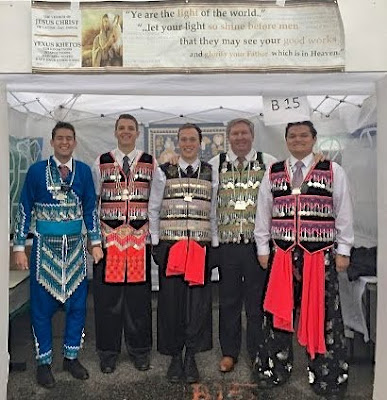We had another out-of-the-ordinary
week. Sister Bradshaw (Mission Secretary and next door neighbor) had major
surgery on Wednesday. She prepared us as
much as possible for the transfer this coming week. She is doing very well and will have daughters
here to help when she gets home.
Although she will not be returning to the office for several weeks, we
look forward to being able to reach her by phone because “Sister Bradshaw Knows
Everything” and we don’t!
There will be thirteen
missionaries arriving and a dozen leaving in this transfer, plus other changes
to line up trainers for all the new arrivals and companions for the ones whose
comps are going home. We had to treat the mail differently: Usually zone leaders pick it up on Friday,
but it can take them several days to get it delivered in spread out zones. Tuesday
is the day missionaries depart and Wednesday is the day new missionaries
come. In order to make sure no mail gets
lost in the shuffle, the mail is held at the office on the Friday before transfer
week and goes out after all the moving is done.
That has probably happened for a long time and may explain why letters
used to come late when our kids were transferred – such a blessing that most
communication with family is now by email.
Though that can fail, too. : )
Saturday morning’s final
choir run through for the Special Zone Conference with visiting General
Authorities was at 7:30 a.m. Then all
the missionaries in the mission (~175) were organized into rows, leaving space
right in the middle. President and
Sister Clark went outside and greeted Russell M. Nelson, President of the Quorum
of Twelve Apostles, his wife Wendy, and Seventies J. Scott Dorius and Carl B.
Cook and their wives, and brought them back to sit in the middle of the group
for a picture. After that the visitors
went into the chapel from one side and all the missionaries entered through the
other side passing by the receiving line where they shook hands with all our
visitors (Sr. missionaries went first and we were lucky enough to be at the
front) and then sat down. Everyone was
in place by 8:57 for the nine o’clock meeting to begin. Perfect!
It was a memorable
meeting. Our choir number with piano and violin accompaniment, “Precious Savior,
Dear Redeemer” by H.R. Palmer, went very well. (There is a similar arrangement
of the piece by the Mormon Tabernacle Choir on YouTube.)
Here are a few highlights of the Zone
Conference:
President Nelson reminded
us that he had been a physician. (Len saw patients with him 40 years ago in SLC.)
He asked, “What is the first question a doctor always asks a patient? It is: Where do you hurt?” Then he said, “Everyone has a challenge. Find out ‘where they hurt’ and you will have
a connection. The gospel of Jesus Christ
has the power to heal. You are the
spiritual physician to the people you teach.
Pray with your investigators.
Sing with them.” During her talk, Sister Nelson said, “ When you sing
about the truth of doctrines in the children’s songs and in hymns, the Spirit
rushes in.”
Other comments by
President Nelson: “Why do missionaries
go two by two? There are many reasons,
but the most important one is that it is part of the law of witnesses.” “Why do we teach the Book of Mormon? It is a tangible sign that the promised
gathering (before the second coming of Christ) is underway.” “Don’t spend your time looking back at your
mistakes. Go forward!” He also commented that ways of teaching the
gospel will continue to change and that there may be fewer chapels and more temples
over time. That reminded Kit of
something Neal A. Maxwell said about 25 years ago at a Stake Conference lunch
in Rochester. He said one thing the
twelve sometimes discussed was what was part of the gospel and what was
tradition? He noted that in Asian areas, religions were not tied to chapels as in other parts of the world.
Elder Dorius told
of a really good salt-of-the-earth man who was his counselor in the bishopric
many years ago. The man bore a strong
testimony, beginning, “I am a follower of Jesus Christ; I am a disciple of
Jesus Christ.” He then bore his personal testimony about the Savior and what
that meant relative to how the man lived his own life. Elder Dorius said that testimony changed the
people of the ward over time as they also grew to define themselves and their
lives.
Sister Cook told
about when their daughter was preparing to leave for her mission. She asked returned missionary friends if they
had any advice. One person said, “Yes. I
wish I had walked with my companion.”
They were interrupted and the Cook’s daughter didn’t get to find out
just what was meant. She asked her
parents what they thought. Sister Cook
thought the friend was probably a really strong, all-out missionary and wished
she’d slowed down a little so she and her companions could be more
unified. Elder Cook thought it was the
opposite: that she wished she’d upped her game to keep pace with her companions
and be more unified. Then they all
realized it didn’t really make any difference which way was right; the
important thing was to be unified with one’s companions.
With our love, Len and Kit




